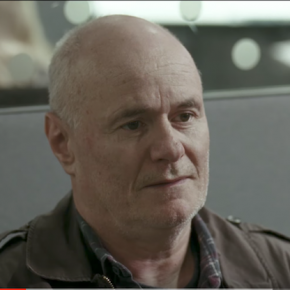This has been one of the more unfortunate weeks of late for the Trump Administration. For a regime that has been shambling from disaster to crisis, that’s really saying something.
The revelation that the president’s son, son in law, and campaign manager had a meeting with a Kremlin-linked Russian lawyer who promised dirt on Hillary Rodham Clinton has blotted out most of the rest of the news.
This is grim news, both for the administration and for the country. It seems to take the question of Russian collusion to another level.
The question remains as to where, in fact, its worst possible consequences will leave national politics.
This could have been a slightly better week for the administration. Aside from a few minor blips, the G20 conference didn’t go nearly as badly as it might have. There was certainly the risk of a serious backlash over Mr Trump’s risible resistance to commonly accepted climate science as expressed by his unilateral withdrawal of the United States from the Paris Agreement. There was also the prospect of some turbulence stemming from Mr Trump’s persistent tendency to make intemperate remarks about China. There was the slightly ridiculous moment in which the president’s daughter actually took her father’s place in a meeting. But Angela Merkel diplomatically made it clear that she didn’t care, and it must be conceded that the first daughter’s presence didn’t really represent a drop off in terms of intellectual substance or attentiveness. If matters had played out differently, the news of the week might only have been the sad figure of Mr Trump wandering around, friendless and pathetic, at a major international meeting.
More optimistically, the news might have been about Mr Trump’s meeting with newly minted French President Emmanuel Macron. Although there is not a great deal of political common ground between the two, Mr Macron shares with Mr Trump the role of an insurgent whose election disrupted accepted political wisdom. And, in fact, the president of France was willing to throw his American counterpart a bone in terms of not taking him to task for his quixotic thoughts and actions on climate.
But, as has so often been remarked, good help is hard to find. The Trump Administration has already been deprived of the services of Michael Flynn, as much due to his failure to admit his intemperate dealings with representatives of the Russian government as to the dealings themselves. At the time, there was a concerted attempt by Mr Trump’s clique to load all the Russian burdens on General Flynn in the hope that it would depart with him, although Mr Trump could still not resist the temptation to as Jim Comey to let him off the hook. Still, at that point, it was still possible for the regime and its defenders to assert that all of the substance of the allegations of collusion were still roughly $1.25 away from amounting to the value of a cup of coffee.
The revelation of the meeting that Donald Trump Jr. had with Natalia Veselnitskaya and a former Russian counterintelligence officer has caused a sudden metastasizationof the administration’s problem. In the first hours after the New York Times, the administration seemed to be trying to sell the proposition that this was simply no big deal. But it quickly became clear that a meeting of three top campaign officials with a person who was, for all intents and purposes, a representative of the Kremlin could not be spun as just one of those things. In fairly short order (and pretty clearly on the advice of administrations lawyers), Donald Trump Jr. released the emails in which the meeting was organized. At another time, this might have read as an appropriate and welcome degree of transparency. In the current circumstances, it merely raised the question as to what even more damaging material was still being concealed.
This is a difficult situation to read. Many in the United States, as I must number myself among them, have been dubious that the accusations of collusions with Russia during the election would amount to much. These revelations seem to take the question to an entirely new level. When one takes this meeting together with Mr Trump’s statement immediately afterwards that he would be delivering a “major speech” on the subject of Hillary Clinton, it is hard to escape the conclusion that some sort of common project was being undertaken.
Only a week or so ago, the talk coming out of the Trump Administration was that it was possible that special counsel Robert Mueller might be fired. This, too, is now a much harder sell. With the Republicans having spent 13 months and $13 million investigating the farrago of nothings that was the story of Benghazi, a shutting down of a thorough investigation of these apparently much more substantial matters now seems impossible to countenance. Nonetheless, the question remains as to where it might go in the end.
The question of whether Trump Jr., Manafort, and Kushner did anything illegal is hotly debated. The fact that the meeting itself was undertaken is evidence of exactly how far we have come from the political certainties that defined this country as recently as a decade ago. That any previous Republican (or his representatives) could have engaged in the kind of contacts with a foreign power that Mr Trump’s representatives have openly conceded can only be conceived of with great effort. That they might have done so with the Russians simply beggars belief. The consequences of a Democrat’s doing so defies that capacities of human imagination.
The surface of the looking glass is long behind us. At street level (so to speak) opinions among Democrats are divided. There are those who think that the eastern promises are a distraction from the more important political business of the party, to wit, systematic and substantive opposition to the Republican and Trumpian legislative agendas. Another group believes that irrespective of the substantiality of the accusations of collusion, the fact that they are dominating every media cycle has, in itself the effect of disrupting the plans and agendas of their opponents. The odd thing is that the divide between these two views does not, in fact, map onto the extant divisions between left and right leaning Democrats.
What rather fewer observers seem to have recognized is that the currency of American politics is no longer what it was. It is no longer a matter of substantive resistance versus the struggle of media optics. Both are now required. Sadly for the Democrats, the party as it exists is in no position to fight this battle. Structurally, the party is committed to a strategy of triangulation and moderation. Whether this is a matter of the memory of the failures of the liberalism of Carter years, or simply on of constitutional disinclination, the leadership has shown a persistent unwillingness to run to the leftward end of its electoral base.
It is commonly noted that armies tend to prepare to fight the last war rather than the next one. The Democrats have, as recently as a decade ago, been wont to show greater suppleness, especially in terms of their embrace of digital strategies and web-based fundraising. But they have signally failed to recognize that American politics is now, predominantly, a politics of spectacle, with substance leading a ghostly existence in the background.
The talk among pundits in this country is the distress of the Republicans. They are now led by a figure given to expressing views not consonant with the traditional foundations of Republican policy (for instance on free trade). They have been unable to move their legislative agenda forward, particularly the repeal of the ACA, for reasons that are not (or are only tangentially) related to the scandals in which the administration is embroiled. But it is their Democratic opponents who have more comprehensively failed to recognize the new world of politics which they now inhabit.
The Republican leadership understand the wants and needs both of their electorate and of their paymasters. Their electorate wants waving flags and Kid Rock and collectively assume that any talk to the contrary (such as assertions of collusion) much simply be fake news. Their paymasters really only care about accumulating capital at the top of the income distribution. If they can achieve this, and they are well on the way to doing so, they will risk whatever else might come. They have made a calculation that even if the administration and the party come to grief in the short term, the work they are doing to dismantle the welfare state and civil rights protections will be impossible to undo. The work of the party is now to create change for a generation or a lifetime. The stakes for which they are playing are worth the risk.
Photographs courtesy of IoSonoUnaFotoCamera. Published under a Creative Commons license.







